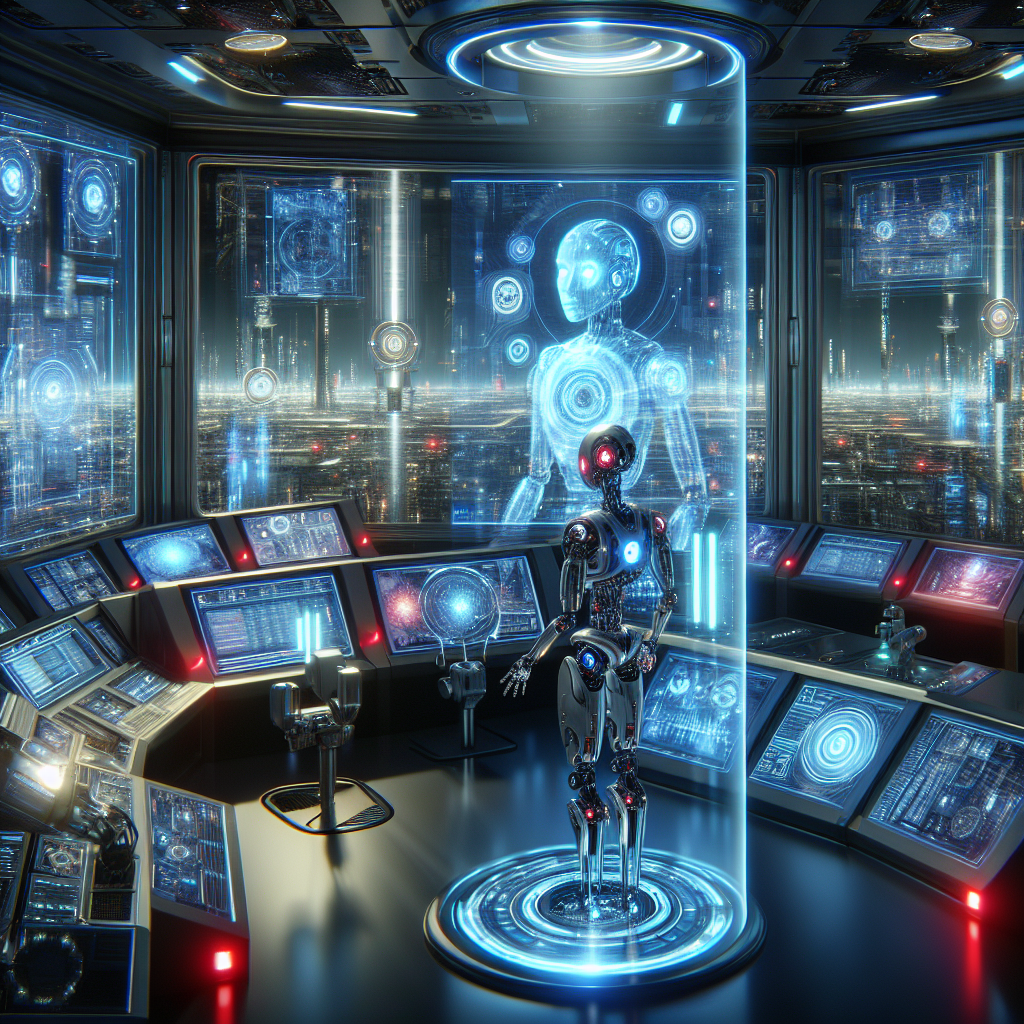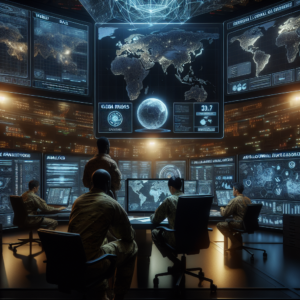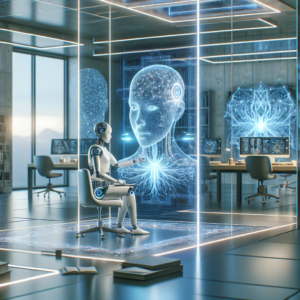The Next Wave of AI is Here: Autonomous AI Agents are Amazing—and Scary
Artificial Intelligence (AI) is undergoing a profound transformation, with autonomous AI agents standing at the forefront of this wave. As we move deeper into the age of machine learning and artificial intelligence, these agents are not merely tools; they are increasingly capable of making decisions, learning from their environments, and even interacting within complex societal frameworks. This post delves into the characteristics, benefits, and potential risks associated with autonomous AI agents, exploring why they are both amazing and scary.
What are Autonomous AI Agents?
Autonomous AI agents are systems designed to perform tasks on their own, without human intervention. They leverage machine learning algorithms and vast datasets to adapt and improve their performance over time. These agents can be found in various applications, from autonomous vehicles and drones to virtual assistants and robotic process automation (RPA).
The defining characteristic of an autonomous AI agent is its ability to learn and make decisions based on the data it receives. This capability allows them to operate in environments that are unpredictable and require real-time decision-making. As AI technology continues to advance, the sophistication of these agents is expected to grow substantially.
The Amazing Capabilities of Autonomous AI Agents
1. Enhanced Efficiency and Productivity
One of the greatest advantages of autonomous AI agents is their ability to execute tasks with remarkable speed and precision. Businesses can deploy these agents to handle routine operations, freeing up human workers to focus on more complex and creative tasks. This efficiency boost can lead to significant cost savings and increased productivity in various sectors, including manufacturing, healthcare, finance, and logistics.
2. Continuous Learning and Adaptation
Autonomous AI agents possess the ability to learn from their experiences. They can adapt their behavior based on feedback, continually improving their performance. This feature is particularly beneficial in dynamic industries where conditions change rapidly. For example, an autonomous driving system can learn to navigate new road conditions and traffic patterns, ultimately enhancing safety and efficiency.
3. Data Analysis and Insights
The ability of autonomous AI agents to analyze vast amounts of data can lead to valuable insights for businesses and individuals alike. These agents can identify patterns and trends that humans may overlook, allowing organizations to make data-driven decisions that can give them a competitive edge.
4. 24/7 Availability
Unlike human workers, autonomous AI agents can operate around the clock without the need for breaks or sleep. This continuous operation is invaluable in various applications, such as customer service chatbots that can assist clients at any time of day.
Potential Risks and Challenges
While the potential of autonomous AI agents is immense, they also pose significant risks and challenges that must be addressed.
1. Job Displacement
As these agents become more capable, there is a growing concern regarding job displacement in various industries. While AI can enhance productivity, it may also lead to the redundancy of jobs that were once performed by humans. Stakeholders must consider how to balance technological advancement with the need for human employment.
2. Ethical Considerations
The deployment of autonomous AI agents raises important ethical questions. For instance, how do we ensure that these agents make decisions that align with societal values? Concerns about bias in AI systems can lead to unfair treatment of individuals based on race, gender, or socioeconomic status. It’s crucial to prioritize fairness and accountability in the development of these technologies.
3. Security Vulnerabilities
Autonomous AI agents can be susceptible to cyber-attacks and manipulation. If malicious actors gain control over these systems, they could potentially cause significant harm. As such, robust security measures must be in place to protect these systems and ensure their safe operation.
4. Loss of Human Oversight
As AI becomes more autonomous, there is a risk that human oversight may diminish. This raises concerns about accountability and the potential for errors. In scenarios where AI agents make critical decisions—such as in healthcare or law enforcement—maintaining a human element in the decision-making process is vital.
The Future of Autonomous AI Agents
The future of autonomous AI agents is both exciting and daunting. As researchers and developers continue to push the boundaries of what these systems can do, it is essential to approach their development with caution and responsibility. Collaboration between technologists, ethicists, policymakers, and the public will be crucial in shaping a future where autonomous AI agents can benefit society while mitigating risks.
1. Regulatory Frameworks
Establishing comprehensive regulatory frameworks will be essential to govern the development and deployment of autonomous AI agents. These frameworks should emphasize transparency, accountability, and ethical considerations, ensuring that AI technology is aligned with human values.
2. Emphasizing Human-AI Collaboration
Rather than viewing autonomous AI agents as replacements for human workers, organizations should focus on fostering collaboration between humans and machines. This approach can maximize the strengths of both, leading to innovative solutions that leverage the capabilities of AI while retaining the unique skills of human workers.
3. Investing in Reskilling and Upskilling
As the job landscape evolves due to AI, investing in reskilling and upskilling programs will be vital. By equipping the workforce with the skills needed to thrive in an AI-driven environment, we can ensure that individuals are prepared for the future of work.
Conclusion
The emergence of autonomous AI agents marks a significant milestone in the evolution of artificial intelligence. Their capabilities are nothing short of remarkable, promising enhanced efficiency, continuous learning, and valuable insights. However, the risks associated with their deployment must not be overlooked. As we stand at the crossroads of this technological revolution, it is imperative to approach the development of autonomous AI agents with a balanced perspective—embracing their potential while diligently addressing the challenges they present. Only then can we harness the full capabilities of autonomous AI agents for the benefit of society as a whole.



